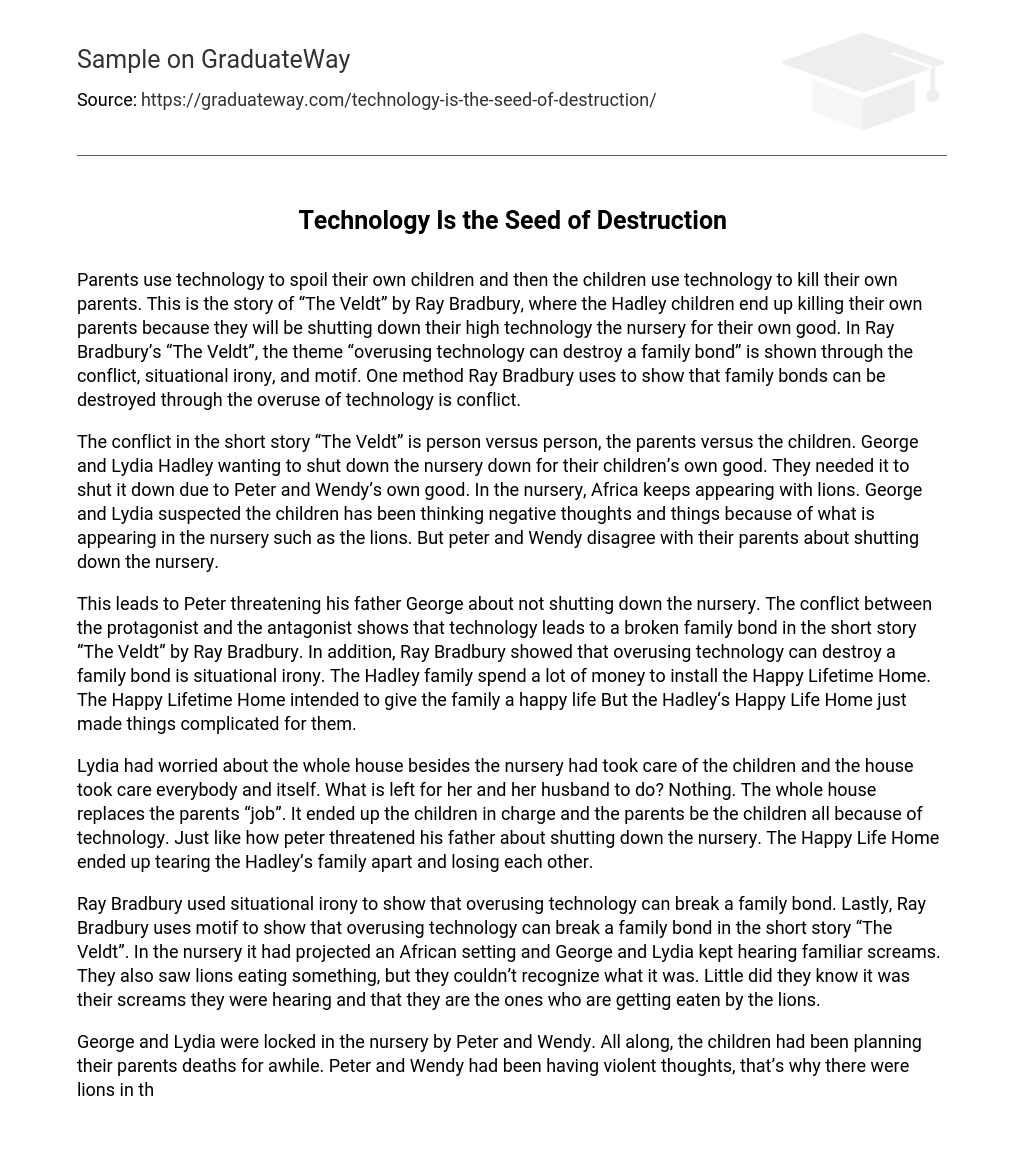“The Veldt” by Ray Bradbury tells the story of parents spoiling their children with technology, only for the children to later use that same technology to harm their parents. The Hadley children in particular end up killing their parents when they try to shut down the nursery, a highly advanced piece of technology, for their own good. Throughout the story, Bradbury explores the theme of technology’s destructive power on family bonds through conflict, situational irony, and motif. Conflict serves as one way Bradbury illustrates how overusing technology can destroy these bonds.
The conflict in the short story “The Veldt” revolves around the parents, George and Lydia Hadley, and their children, Peter and Wendy. George and Lydia want to shut down the nursery for their children’s well-being. They believe that the negative thoughts portrayed in the nursery, such as the appearance of lions in Africa, may be influencing Peter and Wendy. However, Peter and Wendy do not agree with their parents’ decision to shut down the nursery.
In “The Veldt” by Ray Bradbury, the text highlights how technology causes Peter to caution his father George about shutting down the nursery, resulting in a strained family dynamic. Additionally, Bradbury underscores the irony that emerges when an over-reliance on technology deteriorates familial bonds. The Hadley family invested a significant amount of money in installing the Happy Lifetime Home, with hopes of achieving happiness. However, this decision only added complexity to their lives.
Lydia’s concerns extended to the entire house, except for the nursery that attended to both the children and household. Consequently, Lydia and her husband lacked tasks to keep them occupied. This transition was driven by technology which replaced traditional parental roles, enabling the children to take charge while their parents regressed into childish behavior. Similar to Peter’s warning about closing down the nursery resulting in severe outcomes for his father, the Happy Life Home ultimately led to the breakdown of the Hadley family.
Ray Bradbury employed situational irony and motif to illustrate the detrimental effect of excessive technology use on family relationships in his short story “The Veldt”. Within the nursery, the room projected an African environment, causing George and Lydia to hear familiar screams and witness lions devouring an unknown entity. Unbeknownst to them, the screams belonged to them, as they were the ones being consumed by the lions.
Peter and Wendy imprisoned George and Lydia in the nursery, where lions roamed. The children plotted their parents’ demise over an extended period, fueled by violent thoughts. The Happy Life Home had essentially replaced their parents, with its constant caretaking since their birth. The over-reliance on technology, particularly the nursery, ultimately ruptured the family bond in “The Veldt”.
In the short story “The Veldt,” Ray Bradbury utilizes conflict, situational irony, and motif to convey the message that “overusing technology can destroy a family bond.” Bradbury’s intention was to highlight the negative impact of technology on family relationships. In the Hadley’s Happy Lifetime Home, technology assumes the role of parents for the children. This reflects the present-day reality where parents often prioritize television, computers, and video games over spending quality time with their children. Through “The Veldt,” Bradbury illustrates how technology can ultimately lead to the destruction of a family, even in a future society.





